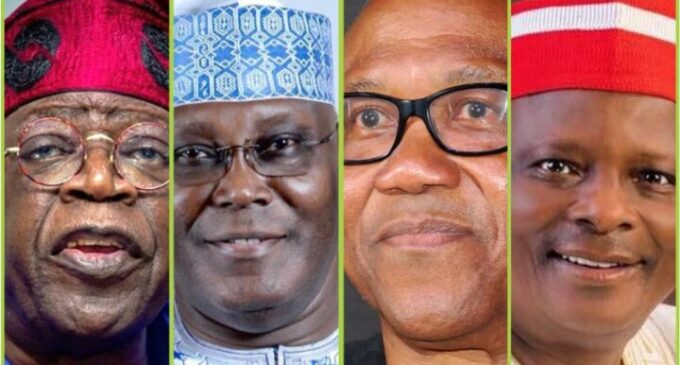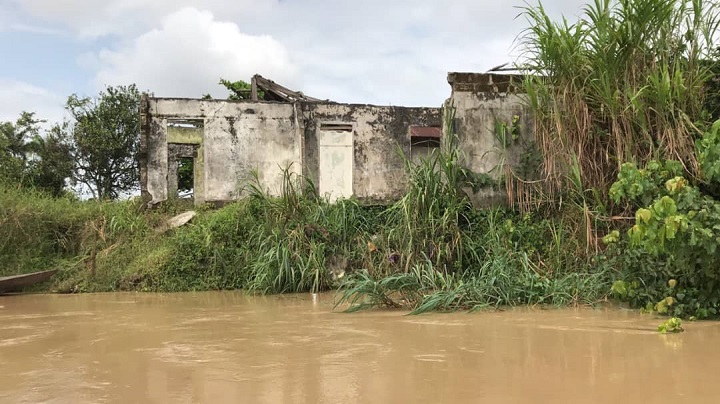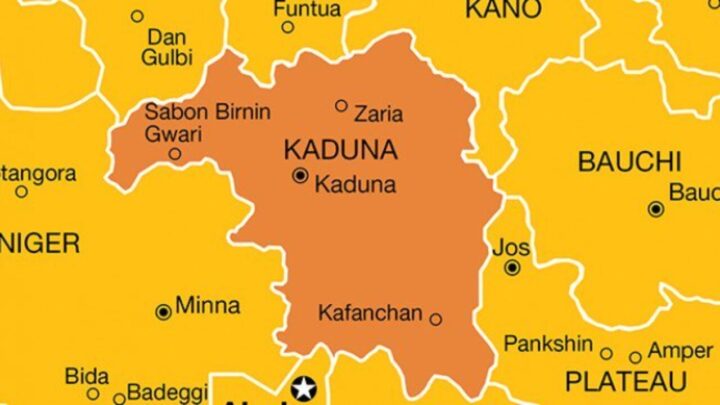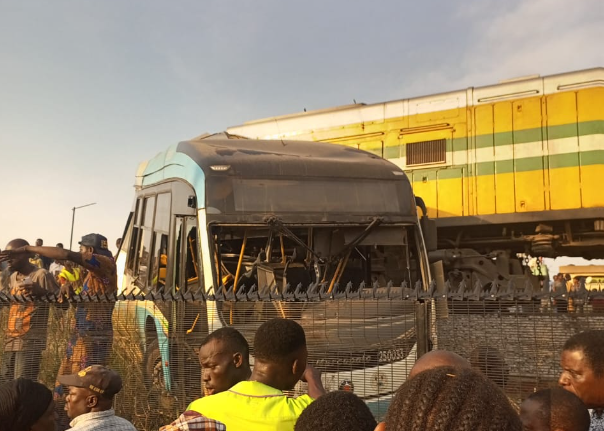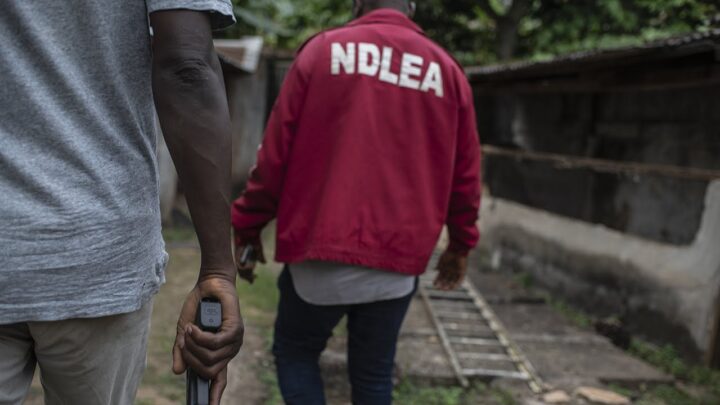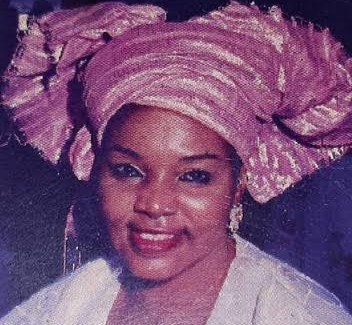BY JEMILAT NASIRU AND MANSUR IBRAHIM
The emerging harmattan winds caressed everything on its path, leaving behind generous dust particles on faces and surfaces. On the path leading to Gagarabami, a community located in Pindiga district, Akko LGA of Gombe state, the sun shone in all its glory upon the untarred and sandy road to the district. To travel such distance is to be lost to the world as network services were non-existent for the most part of the trip.
Pindiga, a once-obscure community, has become a beautiful bride. In 2020, the federal government discovered oil in commercial quantity in the area with about one billion barrels of crude oil reserves and 500 billion standard cubic feet of gas.
In November, President Muhammadu Buhari flagged off the first oil exploration in the region.
This has exposed the community to the world despite its imperfections. The Kolmani oil wells became a frequent mention in the media.
Advertisement
With oil exploration and drilling, taking a cue from the Niger Delta, come a number of challenges — agitations, security issues, spillages, and environmental pollution. The burden of these factors will be borne by the people, whose lives will change for the better or worse, given this development.
POOR ACCESS ROAD
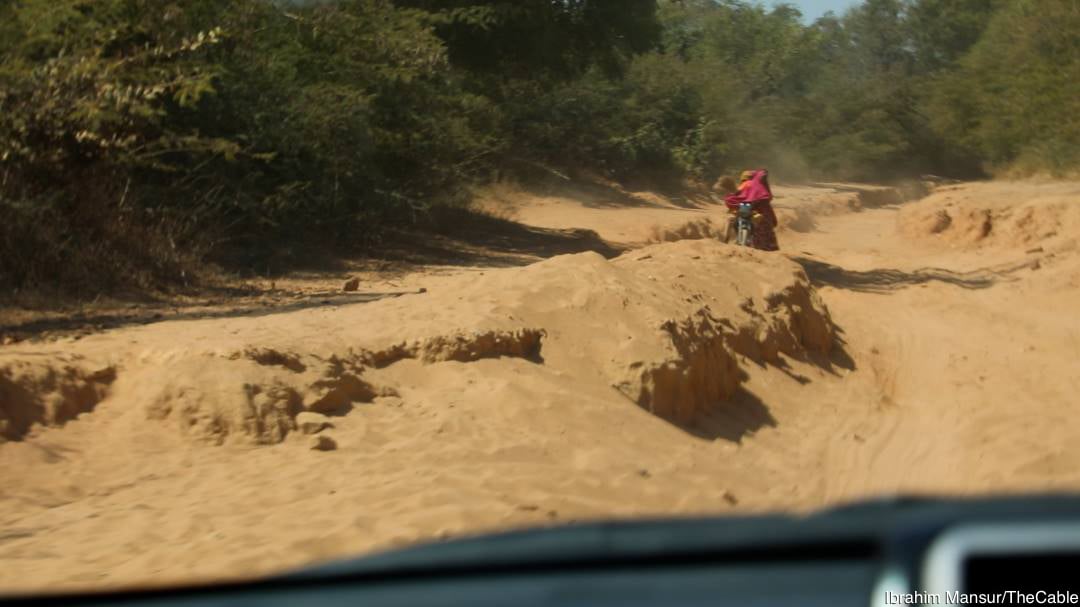
The easy part of the journey from Gombe, the state capital, ended at Pindiga. That was how far a Peugeot 504 could take the reporters. From here, a bike or truck is needed to access Gagarabami, host to Kolmani 5.
Advertisement
Muhammad Seyoji Ahmad, the Emir of Pindiga emirate, said there is no good access road from the town to the communities housing the oil wells.
According to Ahmad, some of the oil wells, including the one that was visited by Buhari to flag off exploration and drilling, are in his emirate.
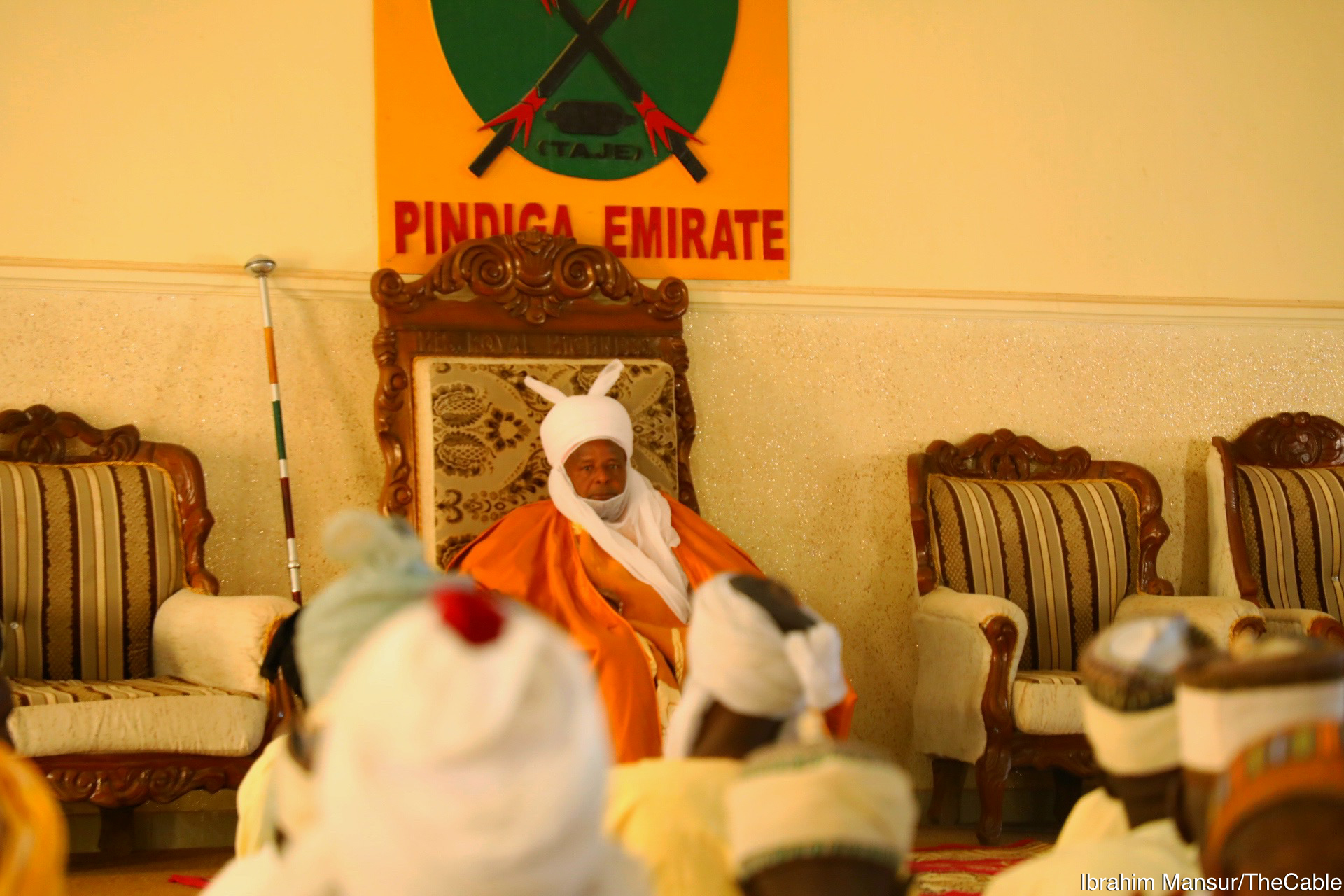
“You cannot make it halfway with a Peugeot. The journey is about 25km and you would need a truck or a bike. Travelling on a bike won’t be easy because of the dust,” Ahmad said.
Despite the high capacity of the car conveying the reporters, it swerved under the influence of sand dunes and uneven terrain, getting stuck a number of times. The journey that should have taken an average of 25 minutes stretched into 1 hour and 15 minutes. For a bike, the risks would be higher and the journey taking longer time.
Advertisement
A FULLY-FURNISHED MODERN HOSPITAL LIES IDLE
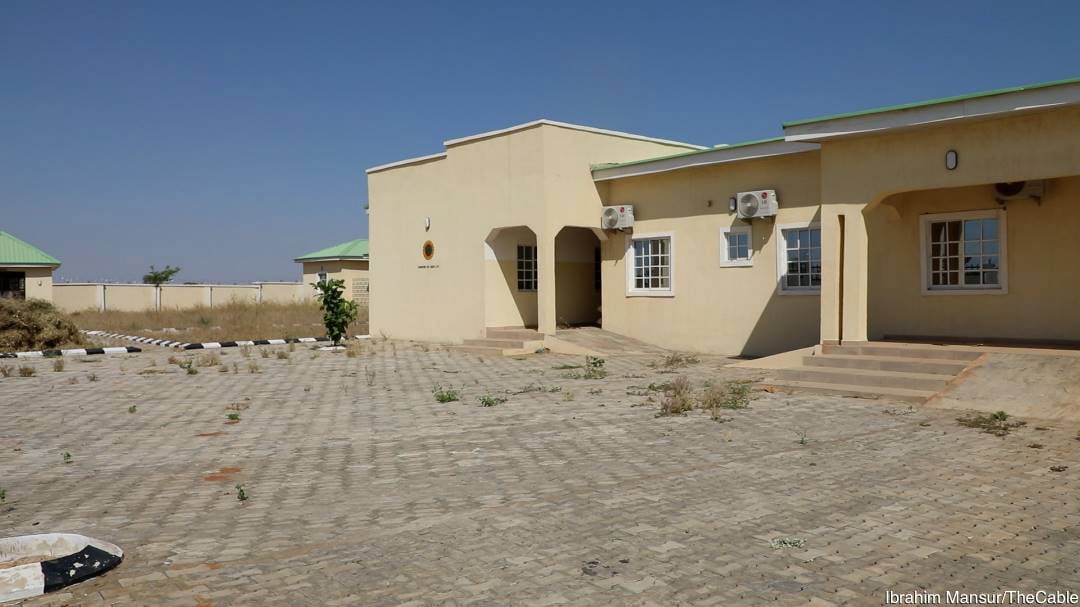
For a community flung far away from the city, we met Gagarabami bustling with life. Some children strolled around while others stood at the entrance of their mud houses as we made our way to the house of the village head who identified himself as Ciroma Gagarabami.
Ciroma said the residents are excited about the discovery of oil in their communities and optimistic that this would bring about a turnaround in their standard of living.
He added that the residents lack basic amenities like network service, electricity, transportation, and health facilities, and they were yet to start enjoying the dividends of living on oil reserves, except for two manual boreholes sunk by the NNPC of which only one was functioning. For this, they are grateful that their water problem is partly solved.
Advertisement
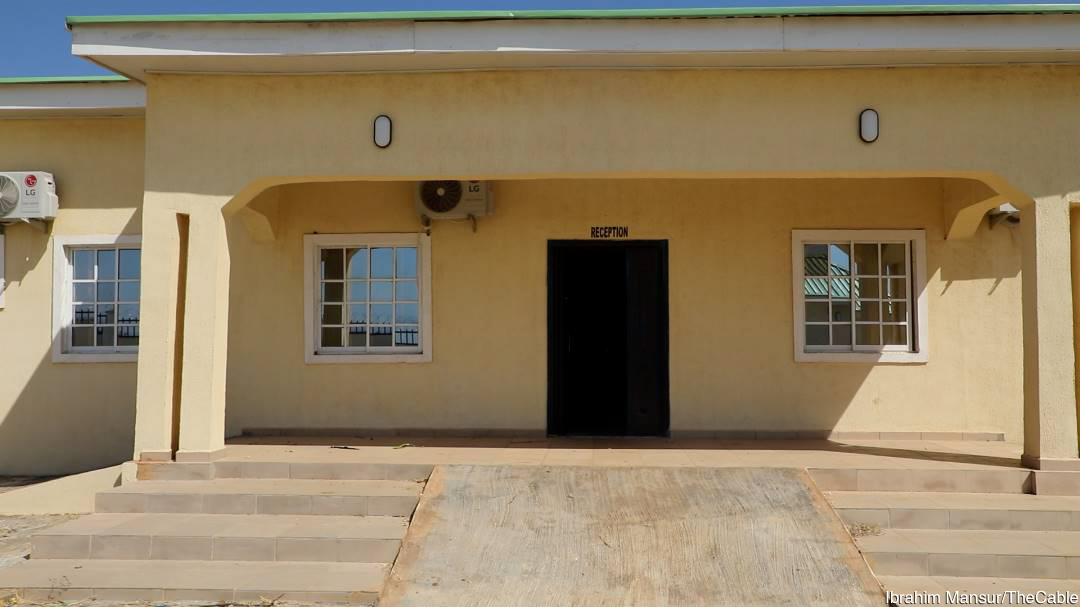
Lying idle along the exit road from the community is a hospital constructed by the NNPC. Ciroma said the facility was completed in 2020 but was never commissioned. Despite having a modern and equipped hospital in their backyard, pregnant women and sick children would have to undergo a torturous 25km journey to Pindiga to access healthcare.
Advertisement
For the children, education remains a fairytale.
“Our children don’t go to school. If we are ill or have an accident, we go to Pindiga or Kashere which is like 25km from here. If the illness persists, then we go to Gombe, about 50-60km from here. That is how we live our lives,” Ciroma said.
Advertisement
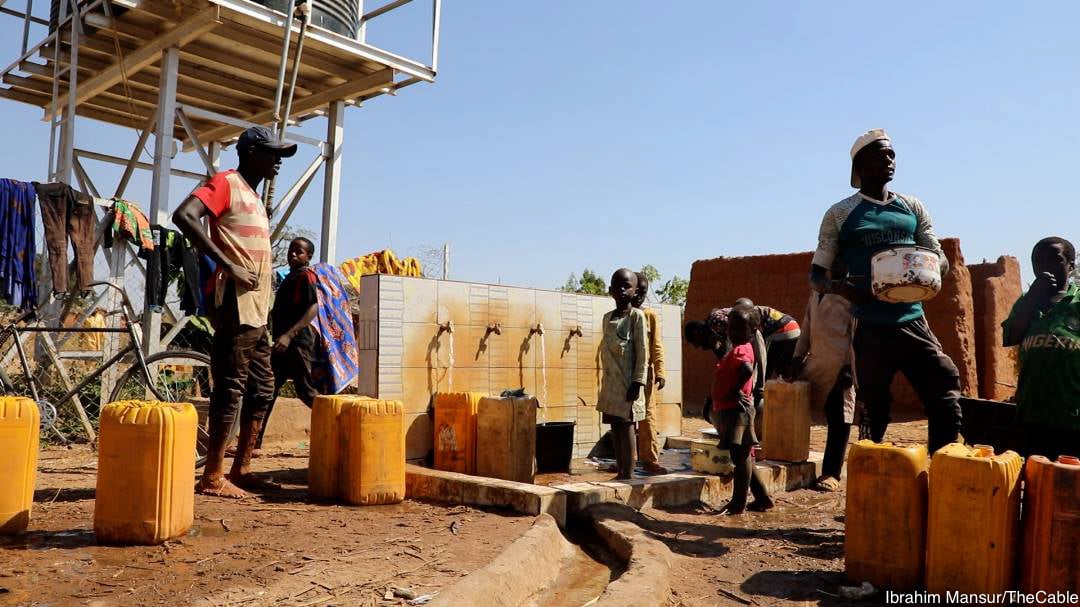
The situation is not much different at Barambu in Alkaleri LGA of Bauchi state. Ibrahim Adamu, who claimed his land was part of the oil field, said the community lacks all basic amenities.
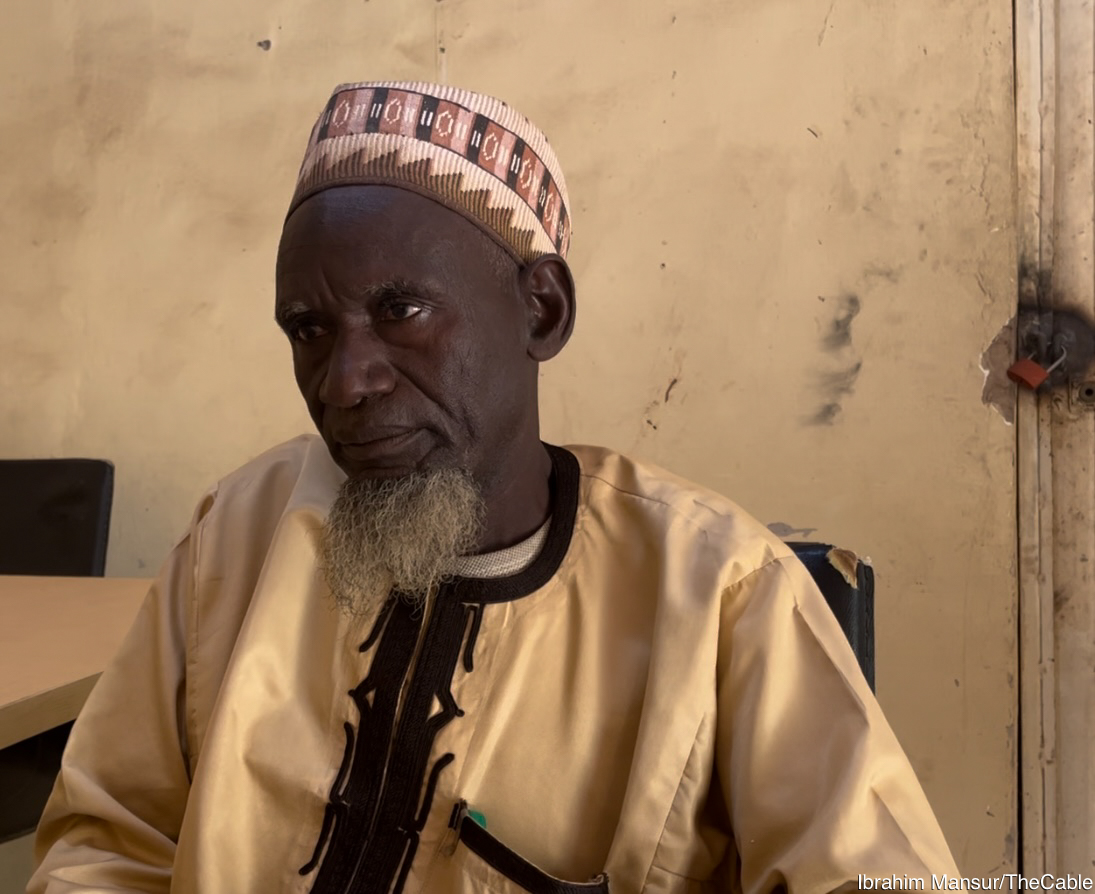
He also said there is a hospital built by the state government through the local government but it is not yet in operation.
Advertisement
The farmer said he has lost count of the number of women in labour, including his sister, who died on their way to the hospital.
While residents in Gagarabami go to Pindiga, the sick in Barambu are transported through a distance of 50km, sometimes on a bike, through rough terrains to access healthcare in Alkaleri.
“Barambu doesn’t have any government facility but all we know is that the governor has directed the local government chairman to come and construct a health facility for us in Sabon Kaduna which we have been expecting,” Adamu said.
“They will come and sit with us and talk and talk that we will see changes but up till now, we have not seen anything. We have facilities but workers have not been posted there to start working.”
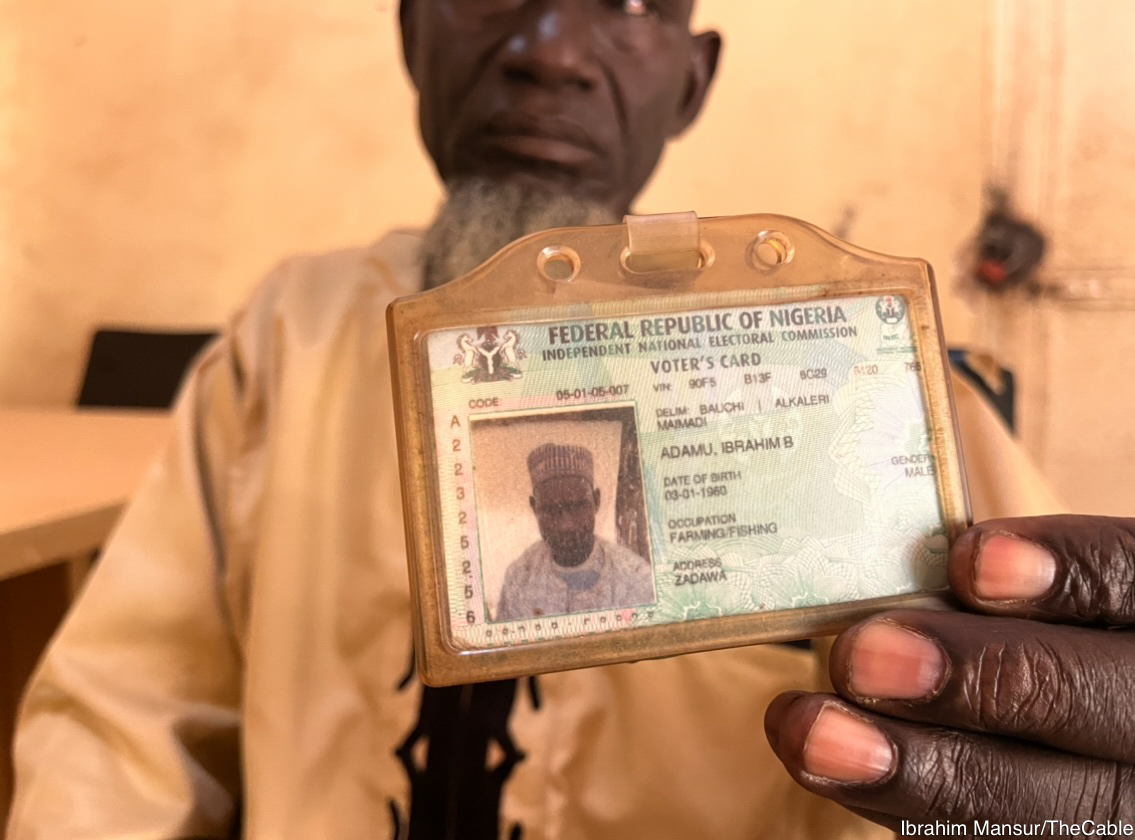
Adamu said the NNPC did nothing for the oil communities in Bauchi but built a hospital branded with the company’s logo in Gombe. Unknown to him, his Gombe neighbours share just the same plight as Barambu residents as the health facility lies idle.
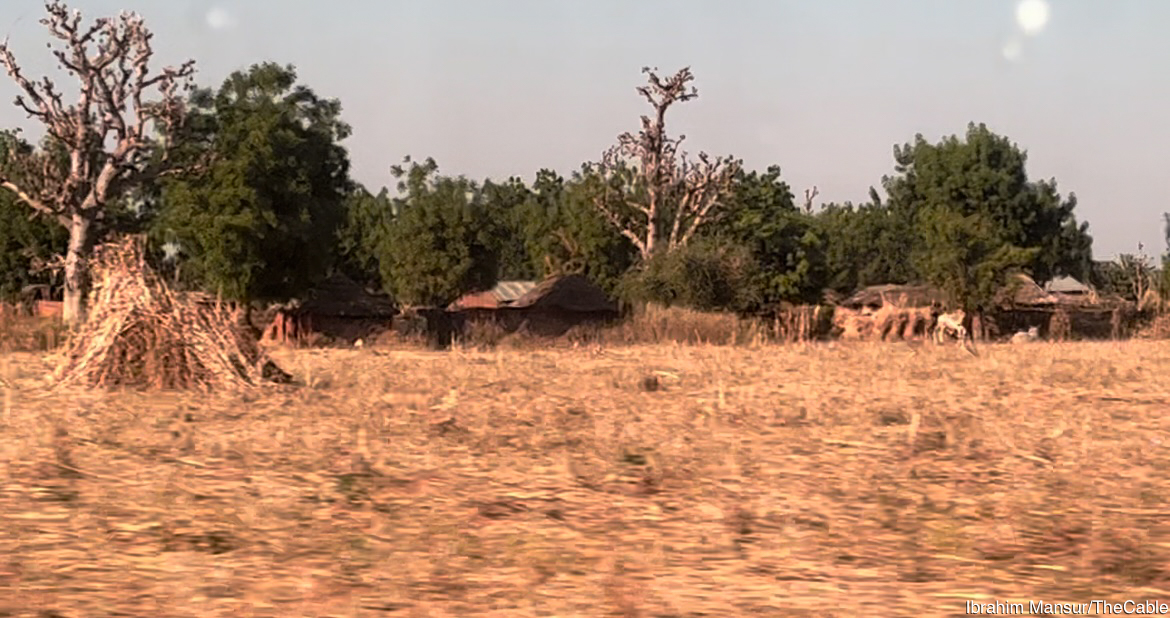
“Our priority is the access road to our communities and then education. I am about 60 years now and I can no longer go to school; but our children, what is their future without education? Thirdly, they should make our hospital start functioning. Even now, my wife is in the hospital. I had to bring her to Alkaleri. If we have these three things, our lives will be better,” he continued.
“NNPC has done nothing for us but they went to the neighbouring state Gagarabami (Gombe), about 5km to the oil wells, to build a hospital with even their logo. We are calling on the government to address our health plights.”
Also speaking, Balumi Jarma, community leader of Maimadi, confirmed Adamu’s claims.
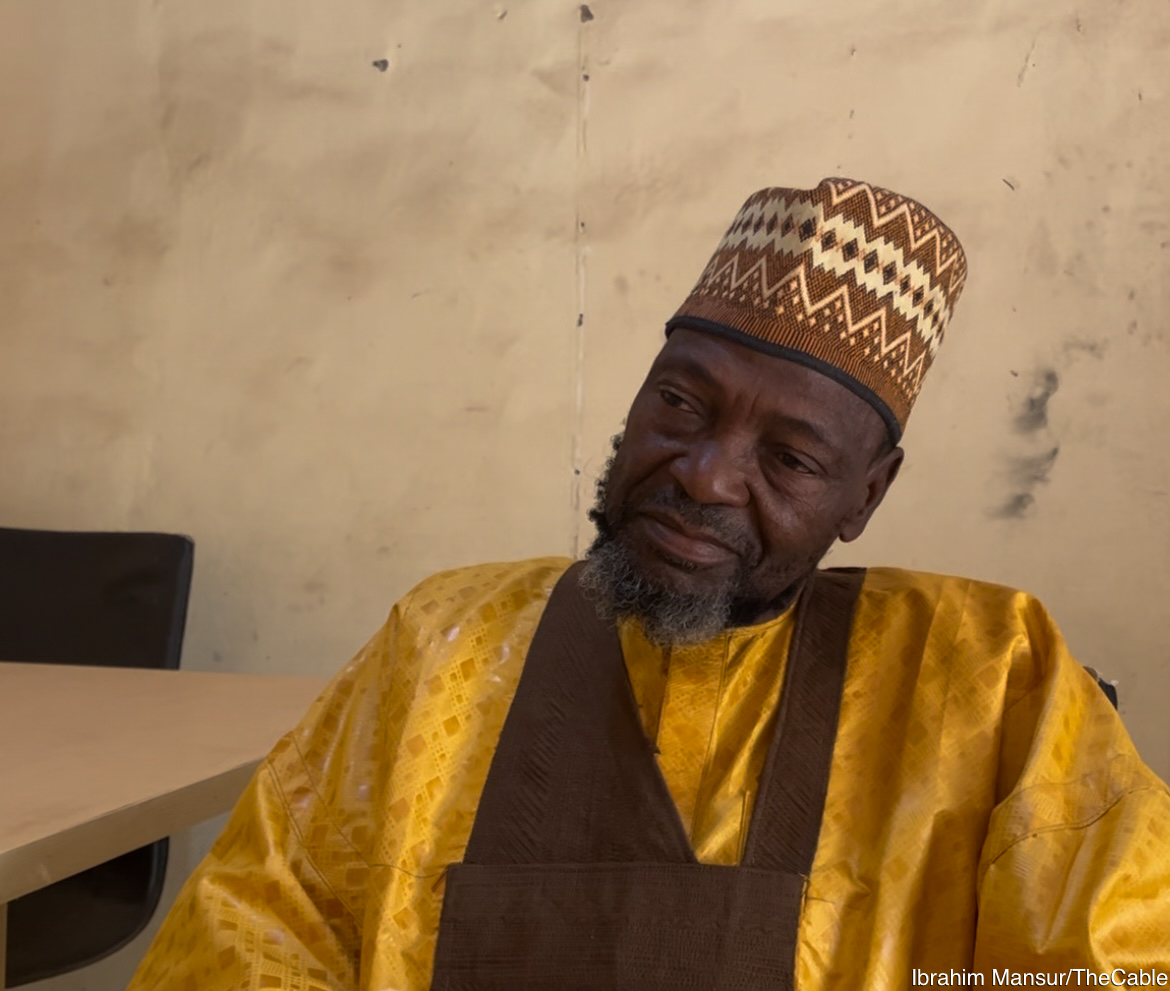
“We use the health facility in Maimadi, about 8km from Sabon Kaduna. When the illness is very serious, we go to Gombe or to Alkaleri with a bike,” Jarma said.
“Both the federal government promised to build health and educational facilities for us when they started exploration in this area. We need good drinking water and employment when this project kicks off.
“We have educated children with diplomas and even university degrees. All we want is for them to be employed when the project takes off.”
WATER WOES
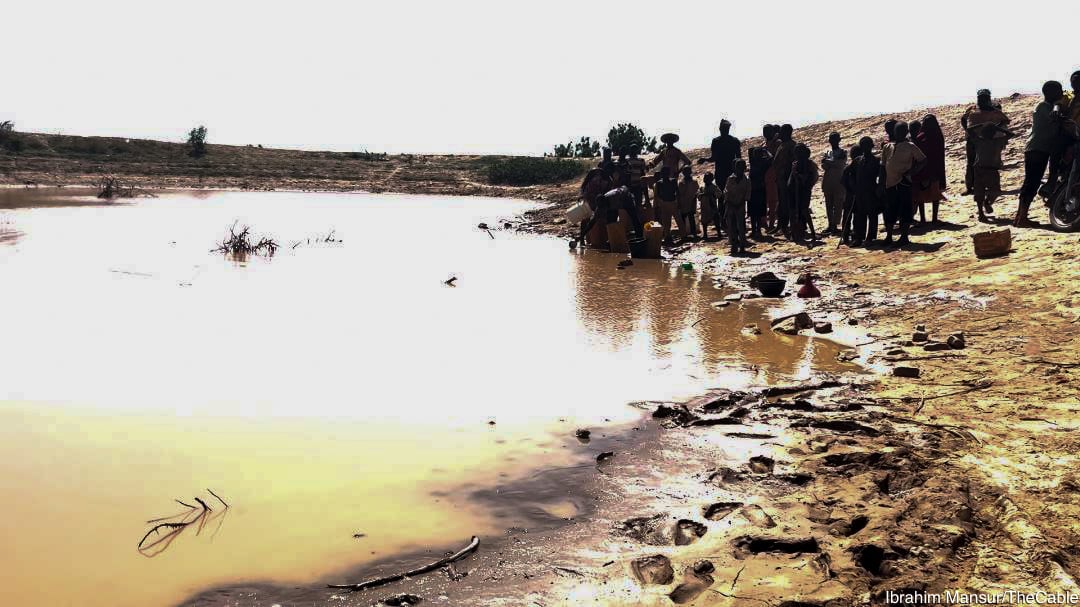
About 7km from Pindiga, children, young men and women from Sabon Kaura gathered to fetch water from a pond down a valley by the road.
They lamented that the dam they got water from was no longer functional, leaving them with only the muddy, stagnant and likely contaminated body of water.
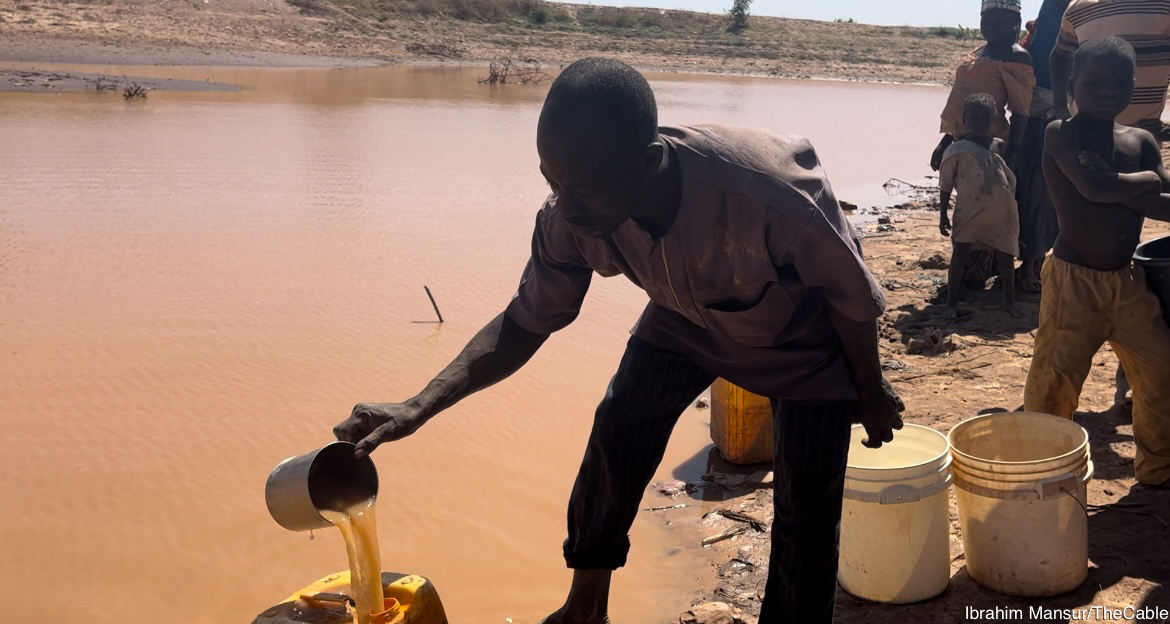
For the children who cannot lift the buckets of water up the valley, they cut a jerrycan half open, fill it with water, tie a rope on the handle and drag it up the valley before they begin their journey home.
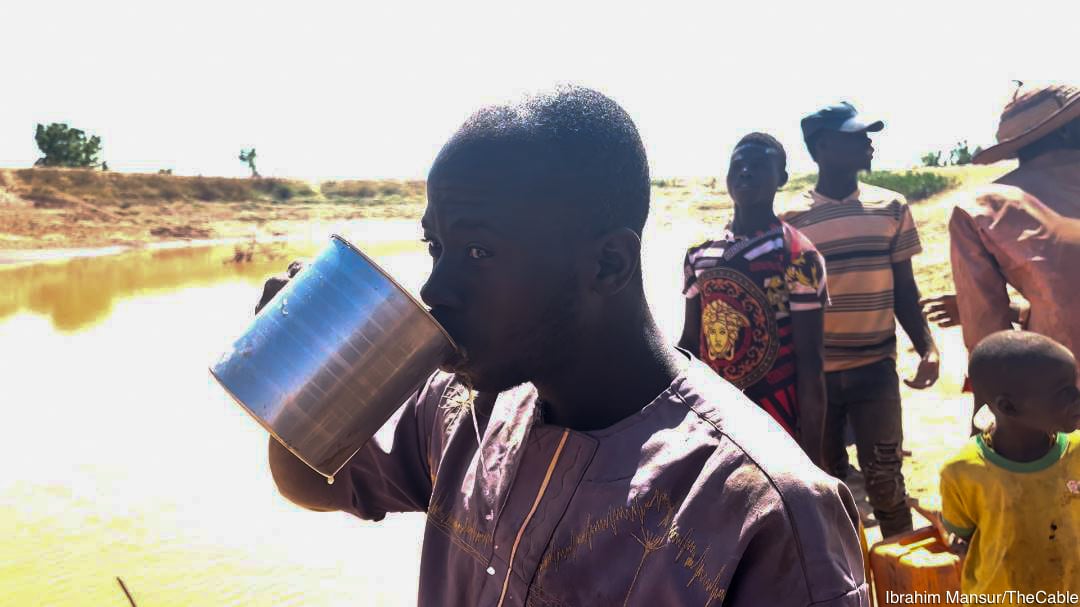
“We drink and bathe with this water. We use it for everything. When the water dries up, we have to walk 7km to Pindiga to get water,” Mallam Isah, one of the men fetching the water, said.
To complicate matters, in the evenings, cattle will tread down the valley to drink from the same water, and humans will resume fetching at dawn.
SOLDIERS DENY OUTSIDERS ENTRY INTO KOLMANI
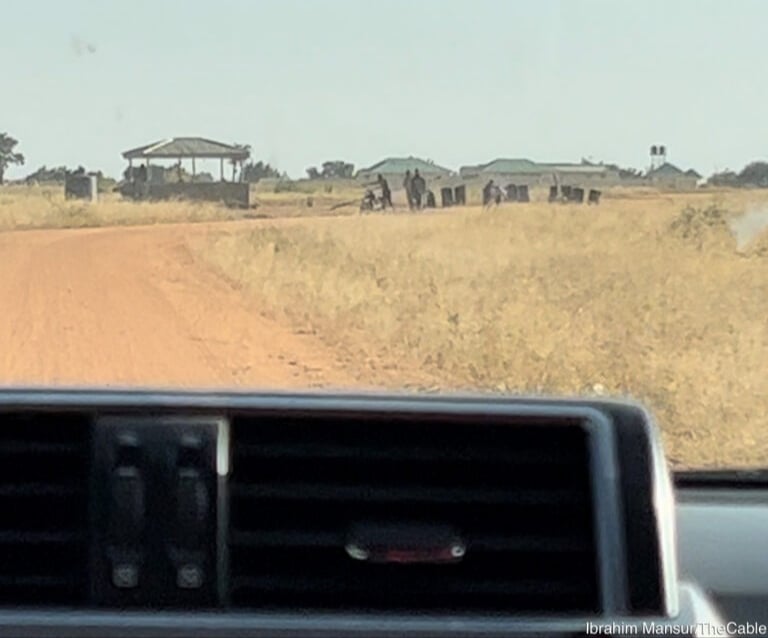
When the reporters proceeded to visit the next community, Kaltangan Gizimawa, said to be host to Kolmani 3, they met an impasse. Less than 2km from the hospital built by the NNPC, they met a military checkpoint. The soldiers stopped the car and after placing calls to his superior, Juwara Y, the lead soldier, denied the reporters access into the communities lying ahead.
“We don’t want any camera here”, Juwara said.
He said if we wanted access to the communities, our company should write the NNPC and 33 Artillery Brigade, Bauchi, to seek permission.
“If you write them and they grant you permission, they will call us here and inform us. We will even provide you with a security escort,” he said.
THE BREWING DISPUTE BETWEEN BAUCHI AND GOMBE
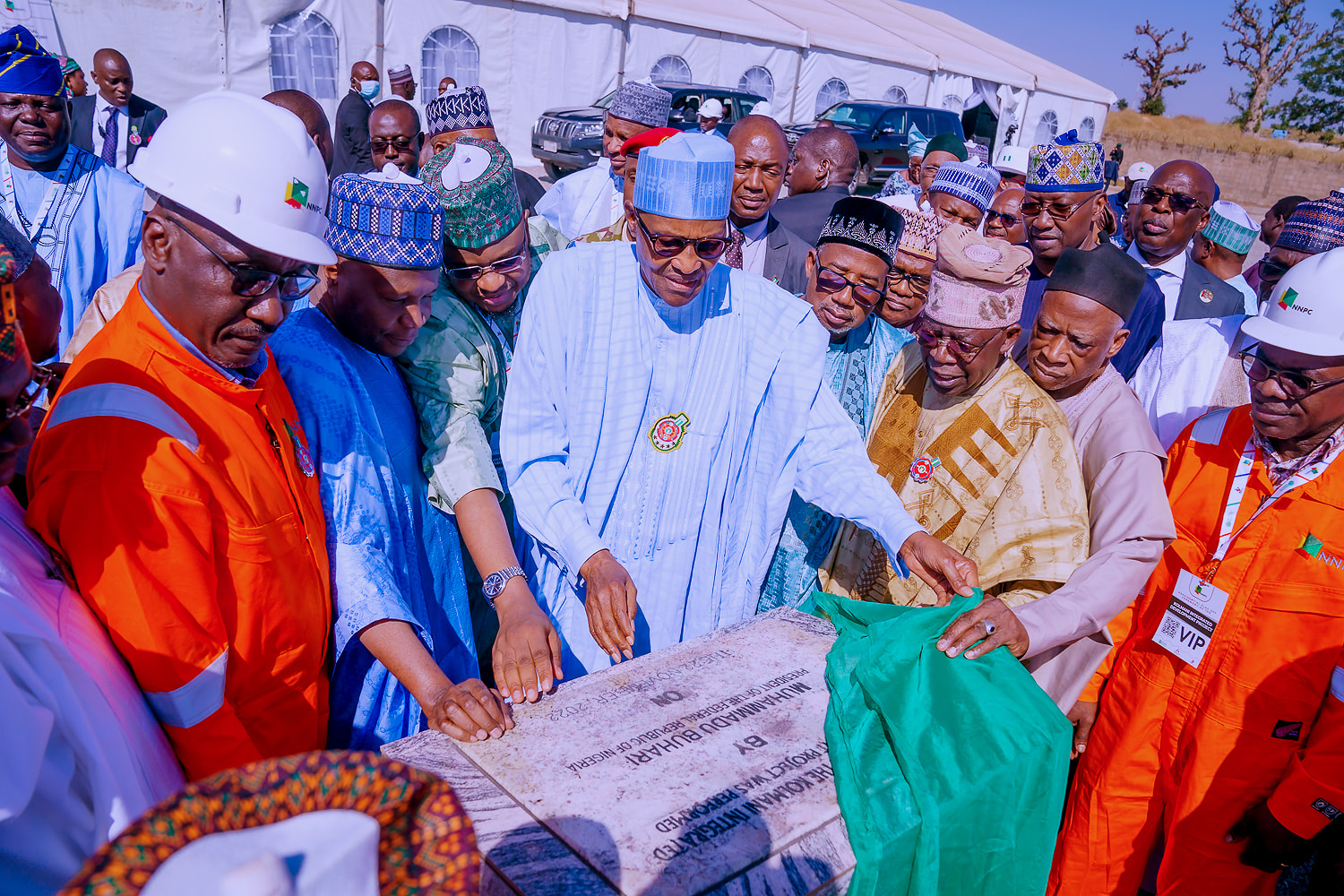
When President Muhammadu Buhari flagged off the Kolmani Integrated Development Project (KIPRO) in November, he said the oil was found in border communities between Gombe and Bauchi, implying that both states co-own the natural resources.
“I have engaged the governors of Bauchi and Gombe states, and both have given me assurances of their unwavering commitment and willingness to ensure support and cooperation in these localities as this activity affects the local populations,” the president said.
However, local residents from the two states are bickering over the ownership, with each side claiming the sole right of possession.
Adamu, who hails from Barambu, Pali district of Bauchi state, said his tomato farm is part of OPL 809, and that he was paid about N600,000 for the land.
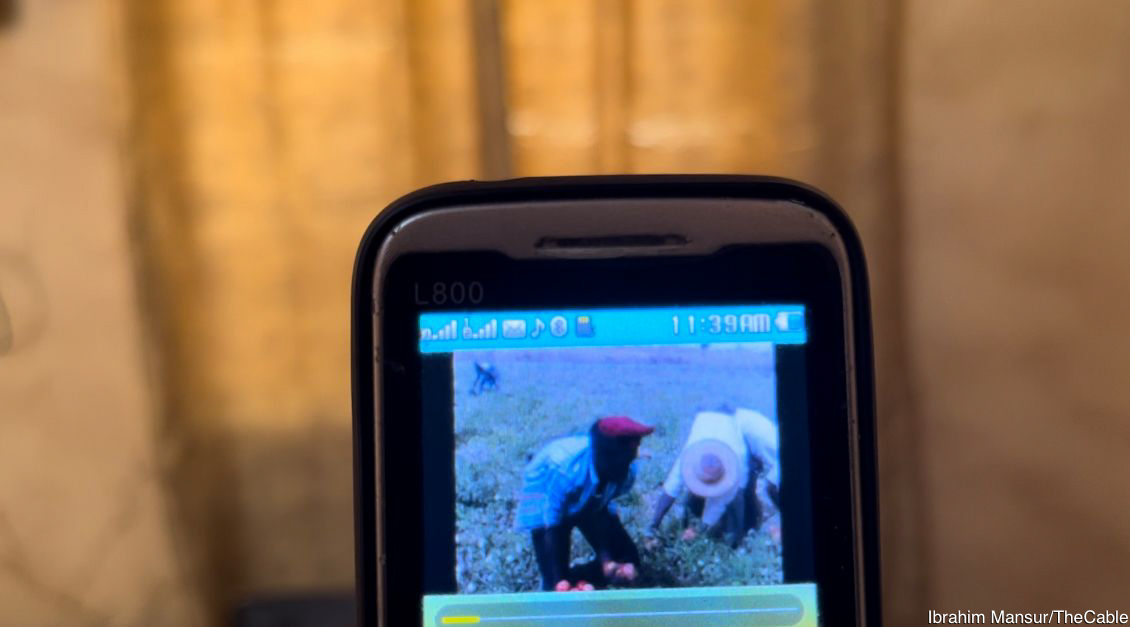
He added that he was born and brought up in Barambu and identifies as a Bauchi indigene.
“I have another farmland now. The other one has already been taken. I cultivated rice and after harvesting it, I planted tomatoes. The other place where the aircraft park is located is my farm too. I used to plant rice, maize, Guinea corn and other grains on it. This farmland was cleared on Wednesday and they started working on it on Thursday,” Adamu said.
“Oil well 809 is my farmland where Buhari came twice to commission. We were given money, like N500,000 to N600,000. We take delight in the fact that oil was found on our farmlands. That is our happiness. If anything is added, fine. But if not, we’re happy because everyone will benefit from it.
“When we were growing up, we knew of the towns Maimadi and Barumbu. Barumbu is under Maimadi and the oil is sited in Barumbu, not Kolmani. Kolmani is a river in a town that is far away from Barumbu, about 6km from Barumbu. Everything we know is that the oil wells are in Barumbu, in Alkaleri LGA of Bauchi state. We grew up to meet it like that.
“What I understand is interest. People that surveyed the land in those years, they were from Gombe and they understood that there was something in the land. They brought the name Kolmani there just for the sake of interest. Kolmani and Bauchi and Barambu are about 5km apart. So, Kolmani is in Gombe, not Bauchi. It’s just a name brought by the surveyors then because of interest.”
Jarma, who also insisted that Bauchi owns the fields, said all was well between the neighbouring communities until the oil exploration discussion came up.
“The oil wells are in Barambu, but they started calling the place Kolmani. Issues started arising between us and our neighbours in Gombe,” Jarma said.
“Our relationship with our neighbouring state before the exploration has been cordial. There was a peaceful relationship and intermarriages between us, but since the exploration matter started, we began to notice changes, hitches, and arguments. The oil is in our area, not in Gombe.
“I am almost 60 and I was born in this area. There is an oil well in Sabon-Kaduna, and there is another one where the aircraft parks. All of the wells are situated in Bauchi state. The Kolmani we are talking about is in Gombe and is far away from where these three oil wells are sited.
“In other to stop this bickering between Bauchi and Gombe, let them bring a map and check and demarcate both states.”
Jarma further said that the oil discovery has exposed his community to some security challenges, calling on the government to come to their aid.
“We have some security challenges. Some people are even leaving because of some incidents of kidnapping, banditry and the oil too,” he said.
‘GOMBE IS BEING MARGINALISED’
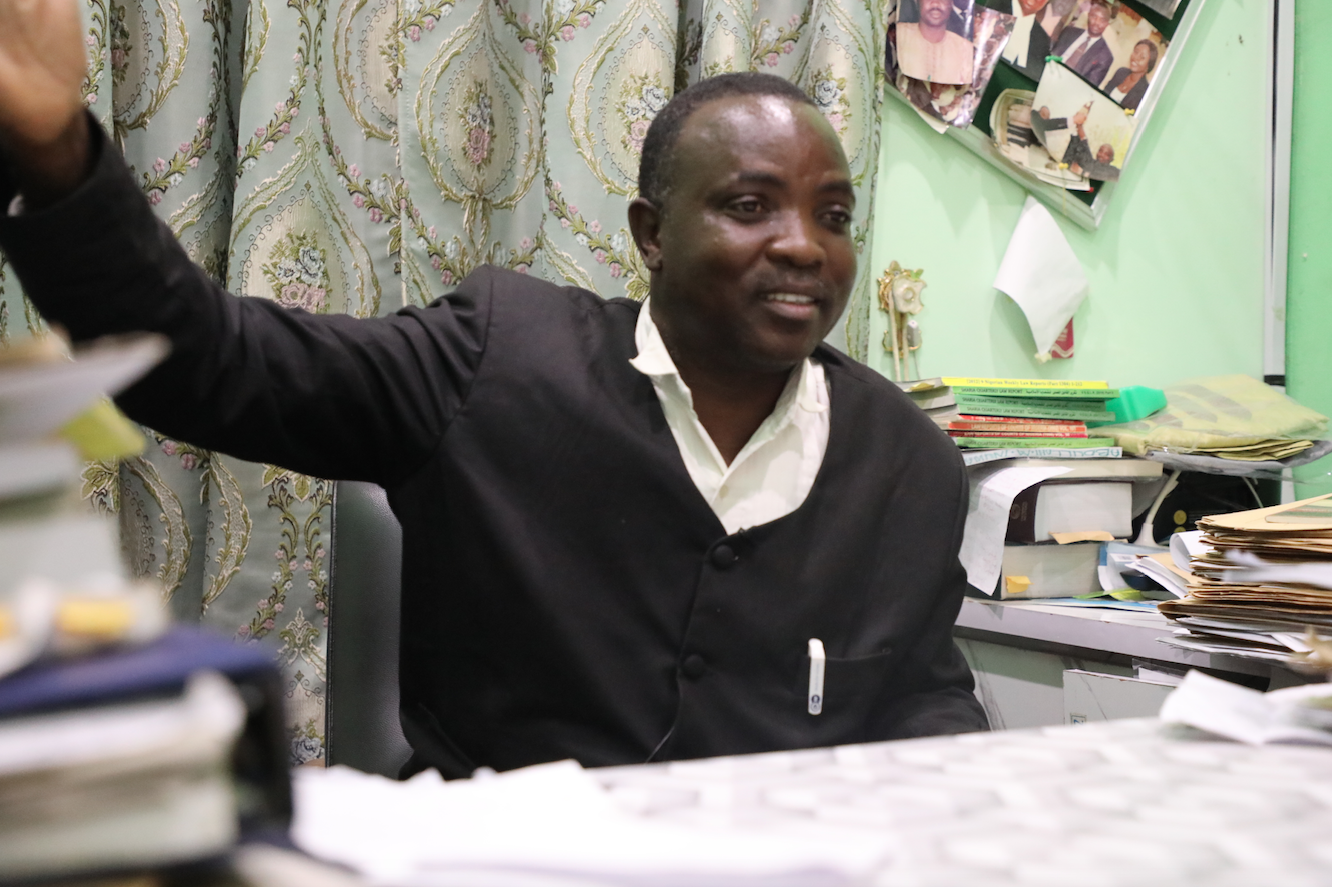
In Gombe, Abdullahi Inuwa, a lawyer, alleged that senior public officials who hail from Bauchi are using their connections to the federal government to deprive and relegate the state.
“Kolmani village is deep inside Gombe, several kilometers away from Bauchi. Kolmani valley is also inside Gombe, so also the wells. Kolani 2, 3, 4 and 5, they are all inside Gombe. Kolmani 2 is the point of contention. It is at Kaltangan Amuda in Gombe. Kolmani 3 is beside that one, also in Kaltanga. Kolmani 4 is at Dumbe and Kolmani 5 at Gagarabami, all in Pindiga emirate, Akko LGA, Gombe state,” Inuwa said.
“I don’t know whether there is oil in Bauchi or not. We have been calling the boundary commission to come and show us a clear demarcation as to where Bauchi is, where Gombe is also located. This will end this crisis. There are two oil blocs; 809 is where all those areas are and 810 is in Pindiga.”
While Inuwa is hoping that the National Boundary Commission (NBC) will put an end to the arguments, Adamu Adaji, director-general of the commission, said he feels both states are “one and same”.
According to NAN, Adaji said NBC’s mandate “does not extend to management and distribution of mineral resources between border communities”.
“I want to appeal to Bauchi and Gombe states to avoid any move that would destroy the already peaceful coexistence between them before the discovery of crude oil in their border communities,” Adaji said.
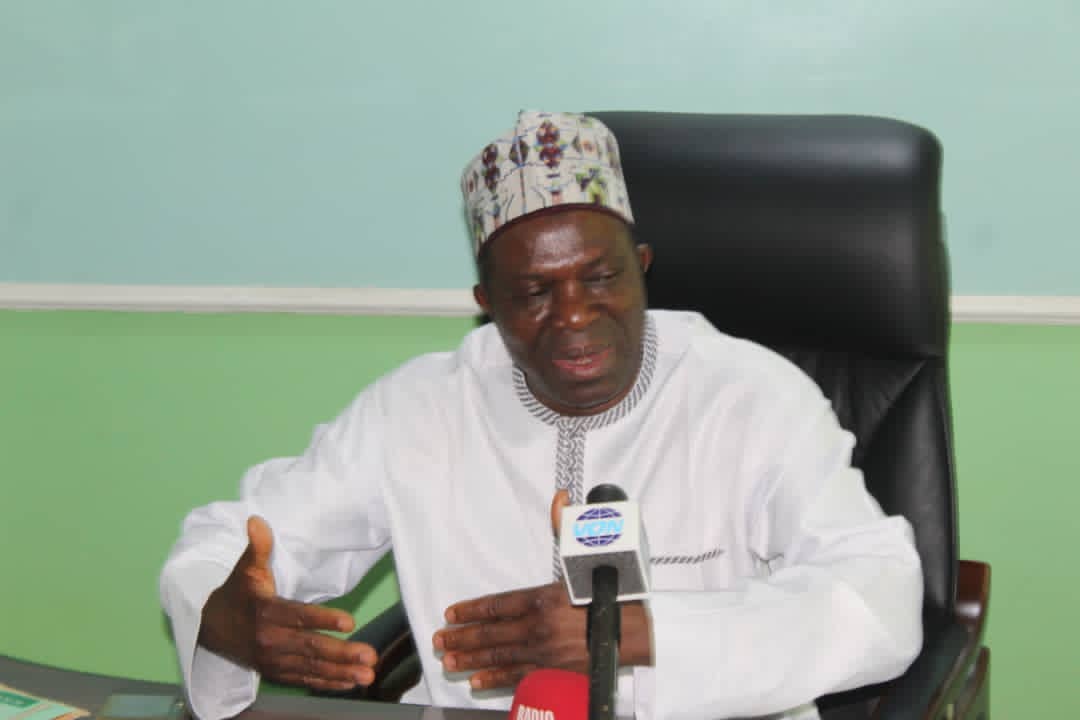
“They should know that boundaries are created for administrative conveniences and not separation. Bauchi and Gombe use to be the same before the creation of Gombe state, and I feel they are still one and the same.
“It would not be good if the two states start fighting each other because of the oil resources that have been discovered in the Kolmani River region.”
On the dispute between border communities, the lawyer said there has been no physical confrontation, only an exchange of words between residents.
“Our governor has been warning us not to say anything that will trigger a crisis between both states. To my knowledge, especially those of us living close to the border, we have been living in harmony,” he said.
“NNPC built their stow and laboratory in Barambu. They built more boreholes in Bauchi than in Gombe. That was how the crisis started. If NNPC wanted us to live in harmony with our neighbours, I think from the onset, they should have organised a kind of committee so that people from the two states will be interacting and any possibility of crisis will be repelled.
“Most of these communities are lagging behind in terms of development. Our most serious problem is water. There are no dams. We have communication problems, all forms of communication — no roads, no telephone service in the areas where Kolmani 2, 4, and 5 are located. Education is nothing to write home about. So, we will be looking forward to how oil will transform our area.”
Inuwa further said that exploration activities by the NNPC affected their lands and that they were not dully compensated.
“During exploration, they used heavy machinery and now gullies are developing in our areas, and our farmlands are turning into gullies. I think there was no proper environmental impact assessment,” he said.
“There is a unit in their office in Pindiga. Many of us have lodged complaints there about these gullies in our farms. Then the payment of our compensation. When they started this exploration, my brother was farming maize and they came with their machines without prior notice, asking him to remove it from their route. They didn’t pay even a single kobo.
“It has been two years now yet nothing has been paid. Even with few people who received compensation, it was inadequate.”
GOVERNMENT OFFICIALS REACT
On the corporate social responsibilities page of the NNPC, the company says, “one of the Nigerian government’s aspirations for the oil and gas is to bring reform, which will require structural and legislative changes, to and relevance of sustainable community development projects in the oil-producing communities such as this cannot be underestimated”.
When TheCable asked Garba Deen Muhammad, NNPC’s spokesperson, why the hospital at Gagarabami was not in operation, he said he could not give a comment.
According to Muhammad, the corporation has a new foundation, which he said is “just settling down”, tasked with its corporate social responsibilities.
“There is a new company called NNPC Foundation and that company is the one taking care of all those corporate social responsibility projects and the company is just settling down now,” Muhammad said.
“So, until they settle down and take inventory of what is on the ground, I cannot tell you the status of the project. As soon as they are done taking inventory, then we would have a true picture of each project. The NNPC foundation came up after the transition of NNPC to a limited liability company.”
However, checks on the internet and the website of the NNPC showed no results for the said foundation.
Calls and messages sent to Ismaila Uba Misilli and Mukthar Gidado, spokespersons to Inuwa Yahaya and Bala Mohammed, governors of Gombe and Bauchi states, respectively, were neither picked nor replied to.
Mohammed has, however, said on several occasions that the discovery of oil in the states will not breed a crisis among the people.
The governor said despite the Kolmani river being the territorial demarcation of the borderline between both states, there was no conflict between the people.
“The two states remain the same. Gombe was carved out of Bauchi. We are brothers and sisters in pain and prosperity,” Mohammed said.
WORDS OF ADVICE FROM NIGER DELTA
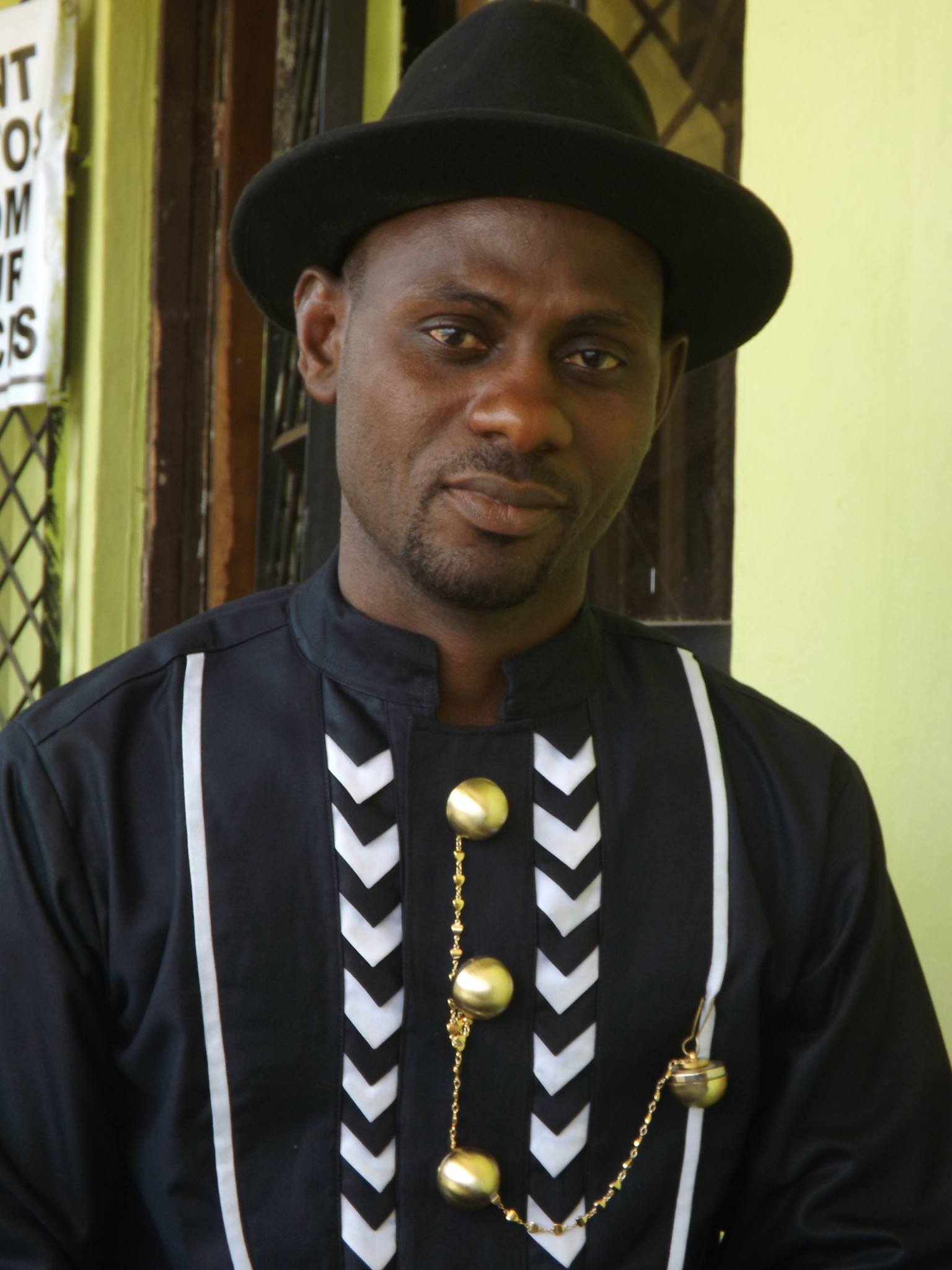
Fyneface Dumnamene, a Niger Delta environmental activist and executive director, Youth Environmental and Advocacy Center (YEAC), said while the discovery of oil in the north is a welcome development, the residents should tread with caution.
Dumnamene, in a chat with TheCable, noted that northerners must learn from the experience of Niger Deltans and ensure all necessary steps are taken to mitigate the side effects of oil exploration.
He further said that the entire country will be at the receiving end should northern lands be polluted by oil.
“What has come is not something they should celebrate 100 percent. It also has its side effects and if they don’t manage it properly, the disadvantages will be more than the advantages. Resource curse has been here with us and I think that it can also replicate itself in other parts of the country where oil has been found,” Dumnamene said.
“My advice for northerners is that they should jubilate, but they should do so with caution because of what is happening in the Niger Delta.
“I know that the north to a large extent serves as the food basket of the country. If the land is destroyed, the hunger there will be worse and the country will also run into very big issues. They should shine their eyes.”
He added that if Nigeria were to keep to its plan of phasing out fossil fuel by 2060, then the north should “quickly tap the oil and begin to benefit from it before it becomes obsolete”.
The oil reserve in the Kolmani area, even with the declining popularity of fossil fuel, has attracted an investment of over $3 billion.
Above are people who might not be able to comprehend wholly the wealth beneath their feet, but are living daily with the optimism that the oil discovery will bring an end to the developmental challenges they have battled with for centuries.
Add a comment
